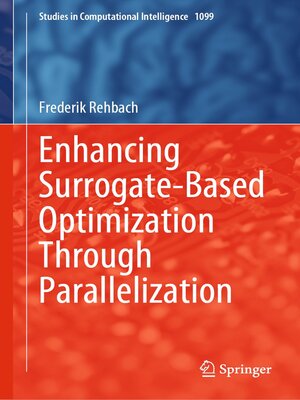Enhancing Surrogate-Based Optimization Through Parallelization
ebook ∣ Studies in Computational Intelligence
By Frederik Rehbach

Sign up to save your library
With an OverDrive account, you can save your favorite libraries for at-a-glance information about availability. Find out more about OverDrive accounts.
Find this title in Libby, the library reading app by OverDrive.



Search for a digital library with this title
Title found at these libraries:
| Library Name | Distance |
|---|---|
| Loading... |
This book presents a solution to the challenging issue of optimizing expensive-to-evaluate industrial problems such as the hyperparameter tuning of machine learning models. The approach combines two well-established concepts, Surrogate-Based Optimization (SBO) and parallelization, to efficiently search for optimal parameter setups with as few function evaluations as possible.
Through in-depth analysis, the need for parallel SBO solvers is emphasized, and it is demonstrated that they outperform model-free algorithms in scenarios with a low evaluation budget. The SBO approach helps practitioners save significant amounts of time and resources in hyperparameter tuning as well as other optimization projects. As a highlight, a novel framework for objectively comparing the efficiency of parallel SBO algorithms is introduced, enabling practitioners to evaluate and select the most effective approach for their specific use case.
Based on practical examples, decision support is delivered, detailing which parts of industrial optimization projects can be parallelized and how to prioritize which parts to parallelize first. By following the framework, practitioners can make informed decisions about how to allocate resources and optimize their models efficiently.
Through in-depth analysis, the need for parallel SBO solvers is emphasized, and it is demonstrated that they outperform model-free algorithms in scenarios with a low evaluation budget. The SBO approach helps practitioners save significant amounts of time and resources in hyperparameter tuning as well as other optimization projects. As a highlight, a novel framework for objectively comparing the efficiency of parallel SBO algorithms is introduced, enabling practitioners to evaluate and select the most effective approach for their specific use case.
Based on practical examples, decision support is delivered, detailing which parts of industrial optimization projects can be parallelized and how to prioritize which parts to parallelize first. By following the framework, practitioners can make informed decisions about how to allocate resources and optimize their models efficiently.







